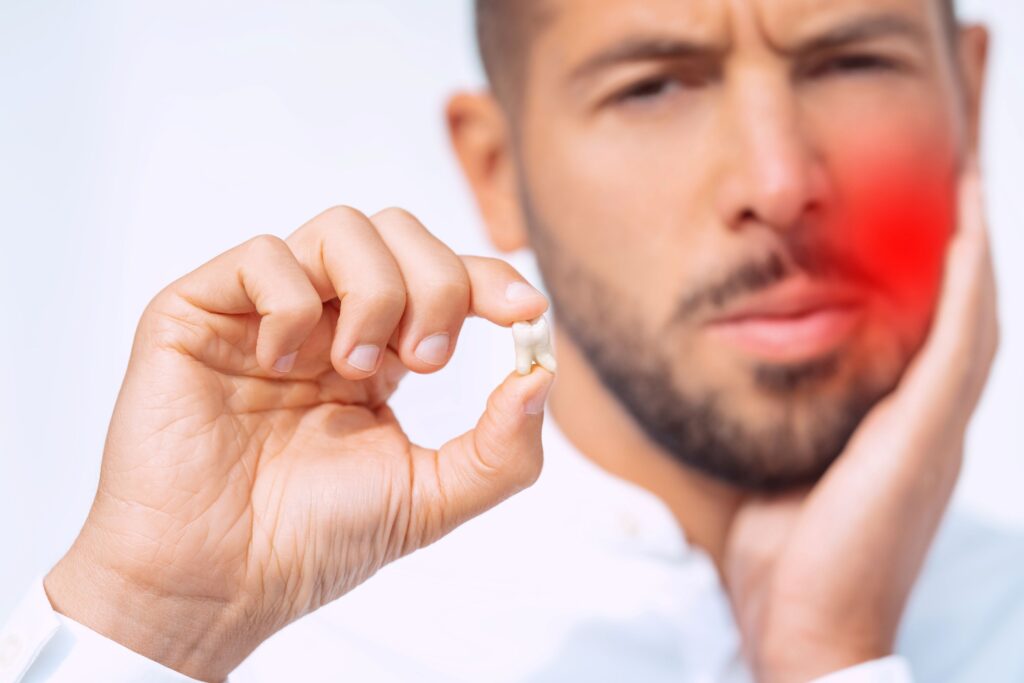Soothing Smiles: Recovering from Wisdom Tooth Extraction
April 7, 2025

If you’re feeling anxious about an upcoming wisdom tooth removal, you’re not alone. Many patients fear dental appointments, especially if they have a complex procedure that might hurt. Thankfully, your dentist knows you’re likely nervous and will do everything possible to help you feel calm and relaxed.
Knowing what happens after your procedure might ease your frayed nerves. If you have questions about recovering from wisdom tooth extraction, continue reading to learn what to expect!
First 24 Hours
You’re likely to be numb for a while following your appointment, so it’s best not to try to eat or drink anything immediately afterward because you might accidentally bite or burn yourself. Then, it’s best to stick to liquid foods for the first day, but you should avoid sipping from a straw. The force of suction can dislodge the blood clot that must form during this time to shield the recently exposed nerves and bone tissues following your wisdom tooth extraction.
You should avoid brushing your teeth or rinsing your mouth out for the first 24 hours for the same reason. You’ll likely feel somewhat sore and inflamed, and you can apply a cold compress to the sore side of your face for a temporary numbing reprieve. It’s usually also safe to take Tylenol or ibuprofen to reduce symptoms.
First Several Days
You should notice that any swelling and aches begin to subside after the third day, and should continue to gradually dissipate until they’re completely gone. If your provider gives you the green light, you can resume brushing and flossing twice daily, though you should use extreme caution and avoid the extraction site so you don’t dislodge the blood clot, which can result in a painful complication known as dry socket. You may want to use a soft-bristled brush and a desensitizing toothpaste to avoid irritating your soft tissues.
If you’re up to it, you can begin eating soft foods like blended fruit smoothies, yogurt, applesauce, pudding, mashed potatoes, or scrambled eggs. You can resume some regular activities but should avoid strenuous exertion that could dislodge your blood clot.
After the First Week
The swelling, soreness, or bruising in your jaw should fade by the end of the first week or shortly thereafter, so you can resume normal activities. If your stitches haven’t already dissolved, your dentist might need to see you to remove them.
If you developed dry socket or are experiencing severe or persistent pain along with other signs of infection, like a fever, sweating, or chills, contact your dentist immediately so they can ensure you’re healing as intended.
Meet the Author
Dr. John Moneyhun is passionate about helping people improve their lives by enhancing their oral health. He earned his Doctor of Dental Medicine at the Medical University of South Carolina and has completed in-depth training in various topics through renowned institutions like the Dawson Academy. He proudly provides a comprehensive menu of services to patients of all ages, including wisdom tooth extractions, to meet all your family’s needs at one convenient location. If you have a sore jaw or are concerned about wisdom teeth, you can request an appointment on the website or call (864) 800-1691.
No Comments
No comments yet.
RSS feed for comments on this post.
Sorry, the comment form is closed at this time.


